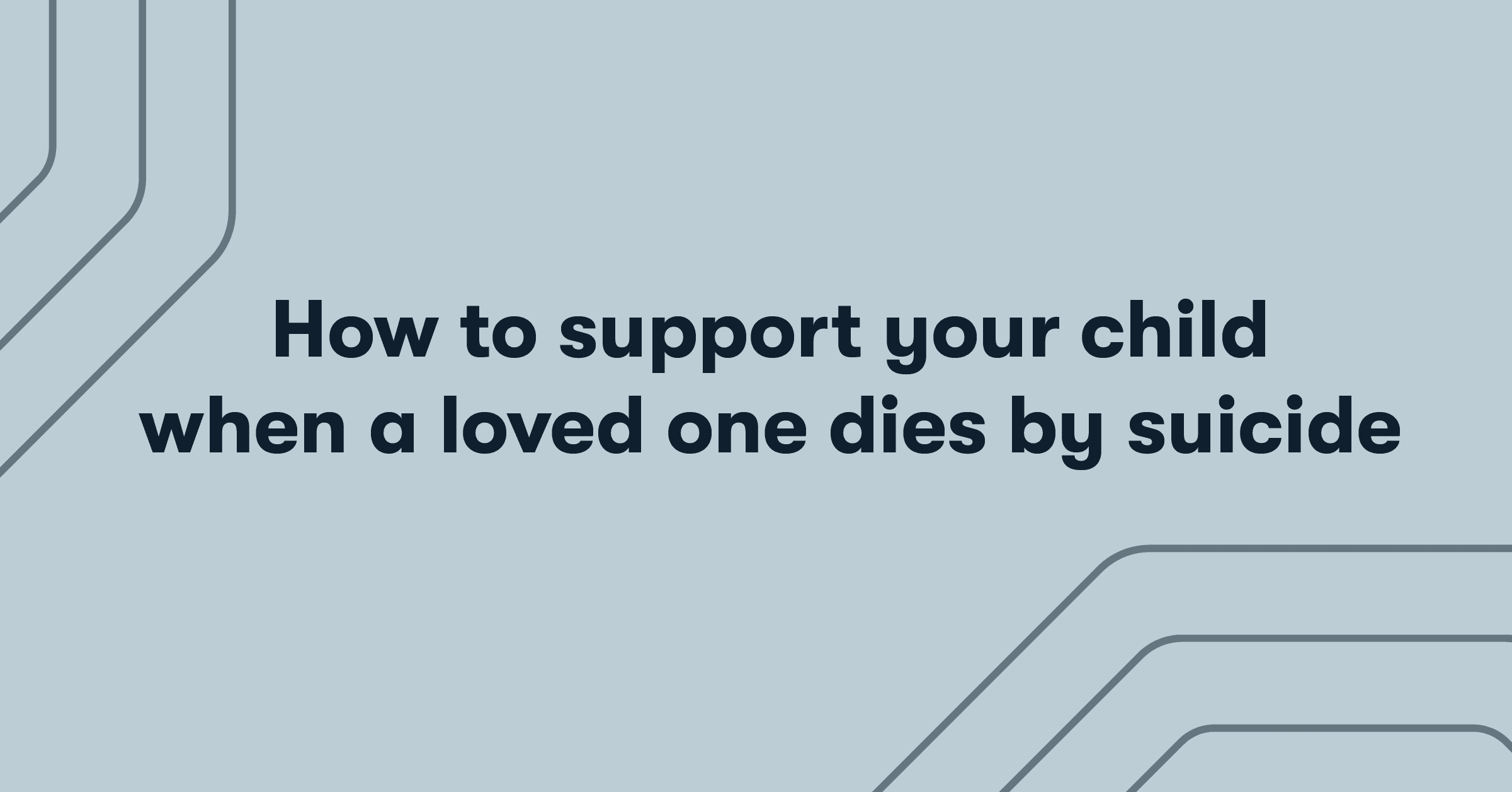How to support your child when a loved one dies by suicide

By Anna Gitlin, MSW, LICSW, Mar 22, 2023
When someone close to your child takes their life, you may not know what to say or do. We have some advice that can help.
Heads up: The suggestions in this story are not a recommended substitute for professional behavioral health support where imminent self-harm/suicide is a possibility.
In a crisis situation, contact the the National Suicide Hotline (800-273-8255) or the Crisis Text Hotline (text HOME to 7414741). You can also chat or call The Trevor Project.
Intro
If your child is close to someone who dies by suicide, there’s no “right” way for them to respond. They may act out, shut down, carry on like nothing’s happened, or cycle through all those reactions. Here’s how you can support them as they process their grief.
Tips
Be there to listen
You might ask your child: “Do you want to talk about this with me?” Instead of offering advice, reflect back what they tell you — for instance, “It sounds like you’re feeling really angry.”
Be honest
Questions always surround a suicide. It’s okay to admit to your child: “We don’t have all the answers,” and acknowledge how painful that can feel.
Accept how your child feels
It can be really hard to see your child upset, but saying something like, “Well, at least they’re no longer hurting,” won’t make the situation any easier. Instead of searching for a bright side, try just sitting with your child.
Don’t hide your own emotions
You may feel that you have to put on a brave face or only cry in private, but it’s okay to be vulnerable in front of your child. Seeing you work through your emotions can help them do the same.
Reassure them
A child who’s lost a close friend may keep wondering if there’s anything they should have done differently. Reassure them that they’re not responsible, and let them know that it’s really common to have thoughts like this when a death happens unexpectedly.
Talk about ways to cope
Grief often comes in waves. Help your child plan how they can deal with strong feelings when they hit. Which friends can they talk to? Which activities, like going for a run, listening to music, or journaling, could help them cope?
Troubleshooting
If your child doesn’t want to talk to you, keep checking in. You might remind them: “You don’t have to go through this alone,” or “I’m here if you want to talk.” They may open up when you least expect it.Funerals and memorials can feel really intense, so allow your child to decide if they want to attend or not. If they’re not sure, you might say something like, “Let’s try going and see how it feels. If you don’t want to be there, we can leave.” Having an “out” could help them feel more comfortable.
Takeaway
If you’re worried about how your child is coping or notice any shifts in their behavior, it’s time for more support. A counselor can help your child work through their feelings and suggest some coping strategies you may not have thought of.